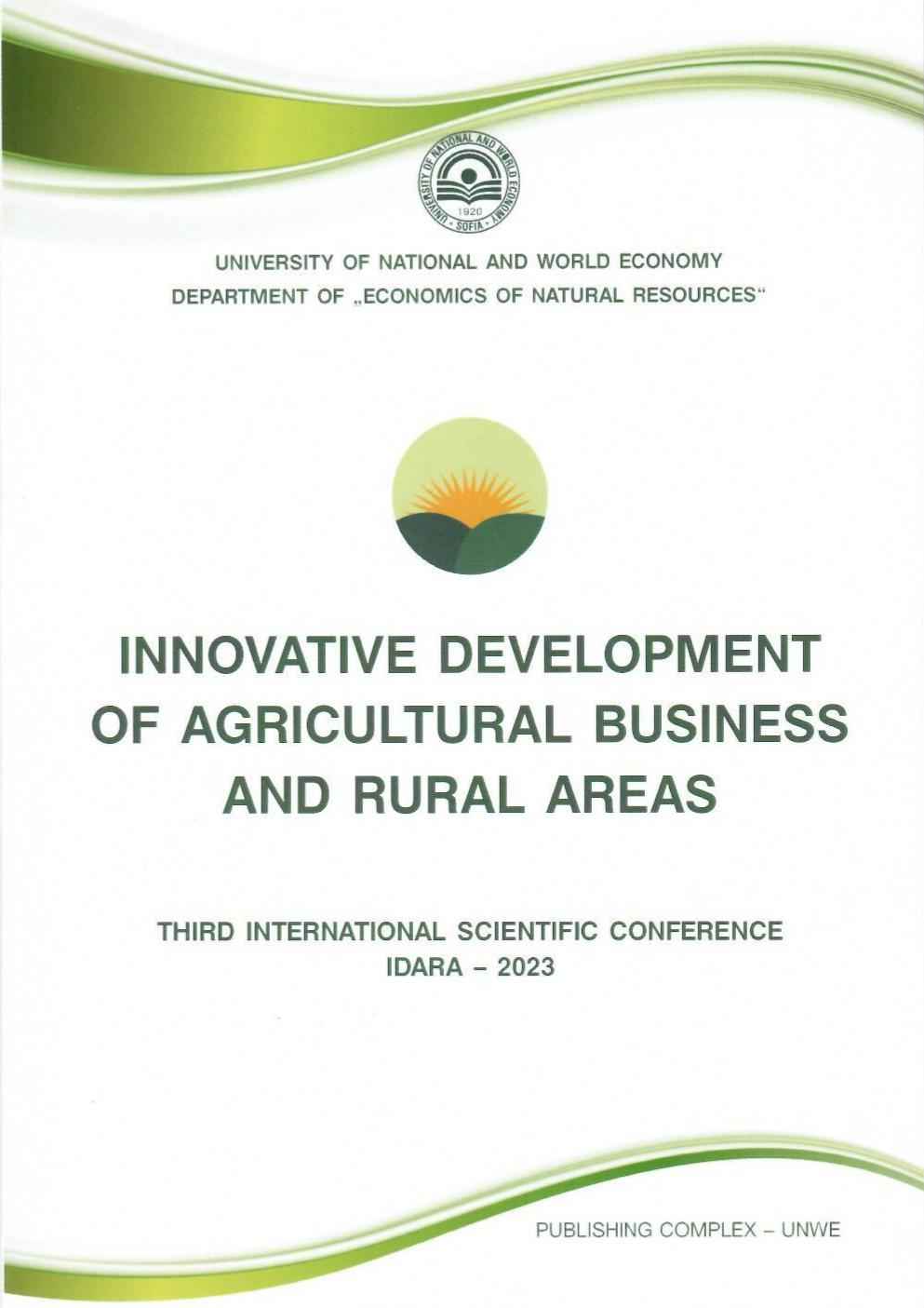Territorial Approaches for Sustainable Development and Management of Rural Areas
Territorial Approaches for Sustainable Development and Management of Rural Areas
Author(s): Marina Nikolova, Pavlin Bogomilov Pavlov
Subject(s): Politics / Political Sciences, Politics, Economy, National Economy, Agriculture, Energy and Environmental Studies, Economic policy, Environmental and Energy policy, Socio-Economic Research
Published by: Университет за национално и световно стопанство (УНСС)
Keywords: territorial approaches; rural areas; sustainable development and management
Summary/Abstract: Territorial approaches are of crucial importance for the sustainable development and management of rural areas. The trend towards consolidating all stakeholders into a comprehensive understanding to enhance the territory's sustainability, and the idea of finding optimal solutions in the pursuit of opportunities for balanced territorial development, is a task with diverse answers depending on the resource potential and activity of local communities. The rural territories in Bulgaria have untapped potential, both in the use and protection of the available resources and their social economic development, as well as in the generation of additional income. Their sustainable development would contribute to achieving a balance between economic, social and environmental growth, as well as significantly improve the quality of life of the local population. The aim of the present study is to identify the integrated territorial approach for sustainable management and development of rural territories in the Republic of Bulgaria. Main groups of activities for achieving balanced territorial development are identified as factors for sustainable development of rural areas. The opinion is defended that an important condition for the integrated approach is for all participants in the process to be interested and successfully combine specific measures suitable for the integration and development of the territory. The implementation of appropriate tools and correct approaches for sustainable rural territory development requires careful analysis and selection of effective measures, depending on the specific characteristics of the location and the initiative of the local community. Although agricultural activity occupies a significant portion of the business in most of these areas, it is imperative to have an adequate policy for the development of additional activities that ensure economic prosperity and a higher standard of living for the local population and their employment. Therefore, in order to achieve three-dimensional sustainability (economic, ecological, social), it is more than necessary to have better interaction and coordination among all participants in the process and a holistic approach to the development and management of each specific territory, in accordance with its specific needs, opportunities, and optimal solutions. Each community can contribute to achieving the goals of sustainable development by 2030, and not only in a narrow scope, but also by contributing to the global challenges that modern society as a whole is facing. The choice of a model for increasing sustainability in the specific territory should be aimed at optimal utilization of regional resources, diversification in the functional use of the territory, optimal diversification of production and economic activities, environmentally friendly business practices and above all at effective interaction between institutions, local administration, business and local communities.
- Page Range: 86-98
- Page Count: 13
- Publication Year: 2024
- Language: English
- Content File-PDF

